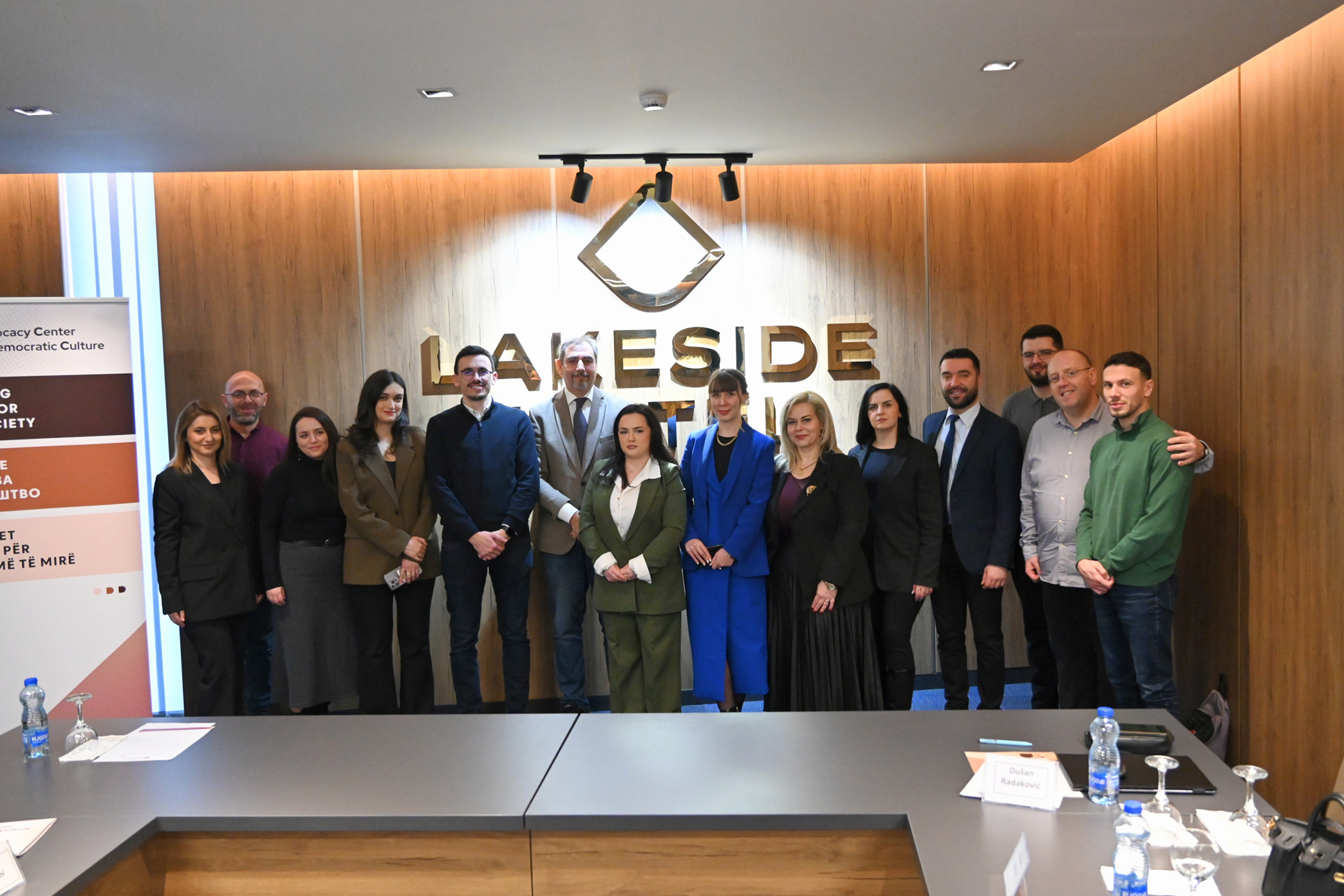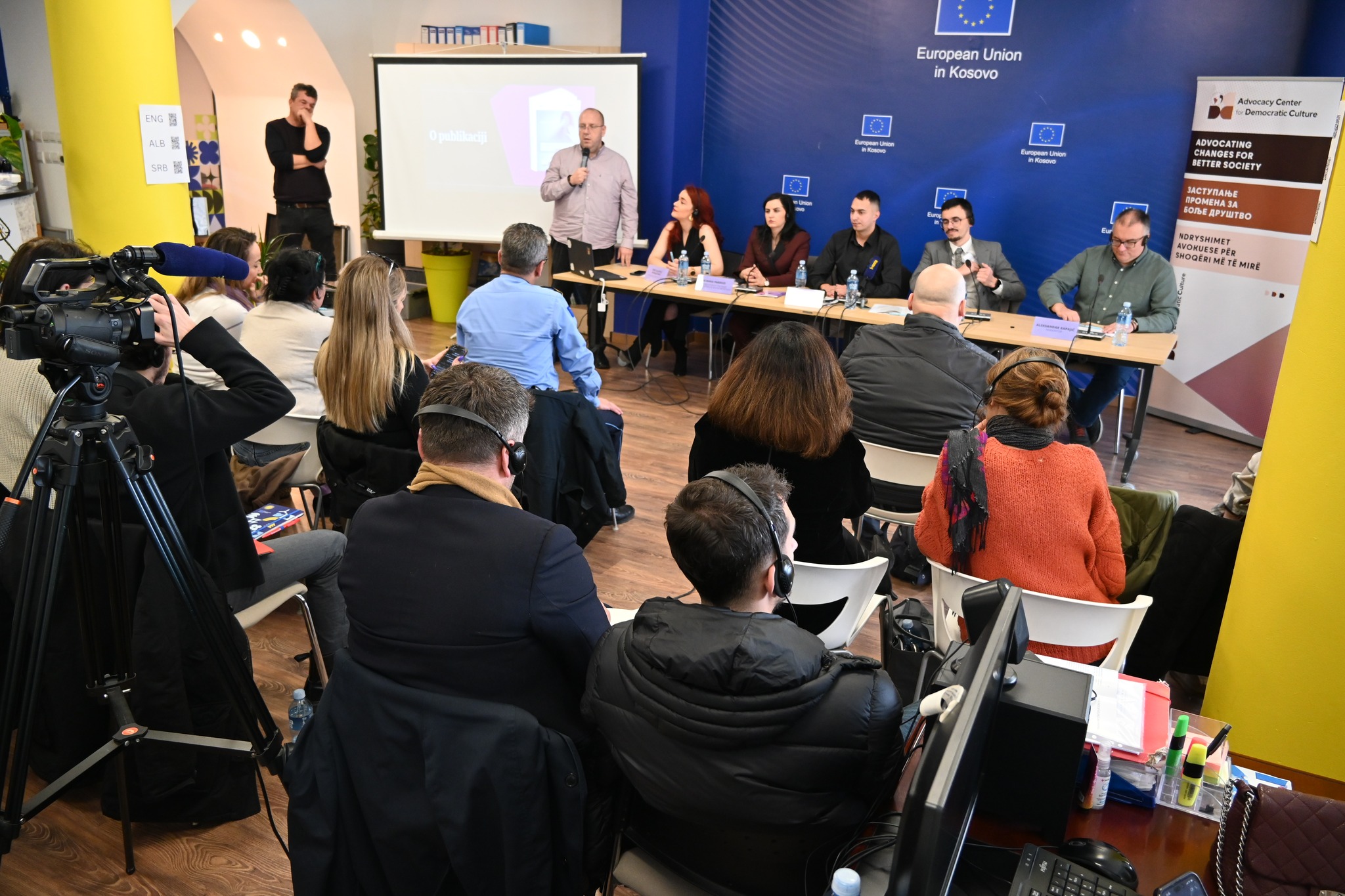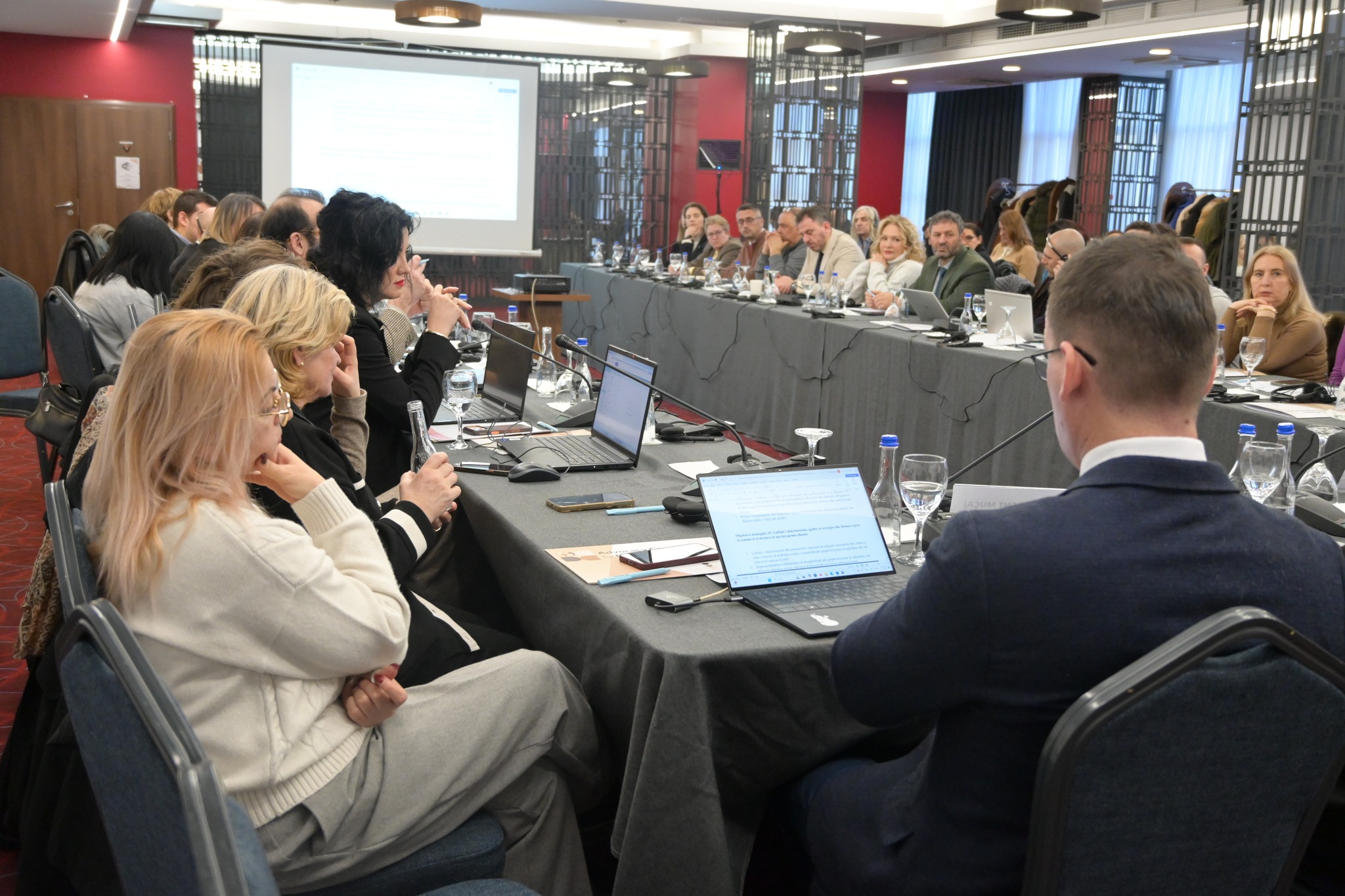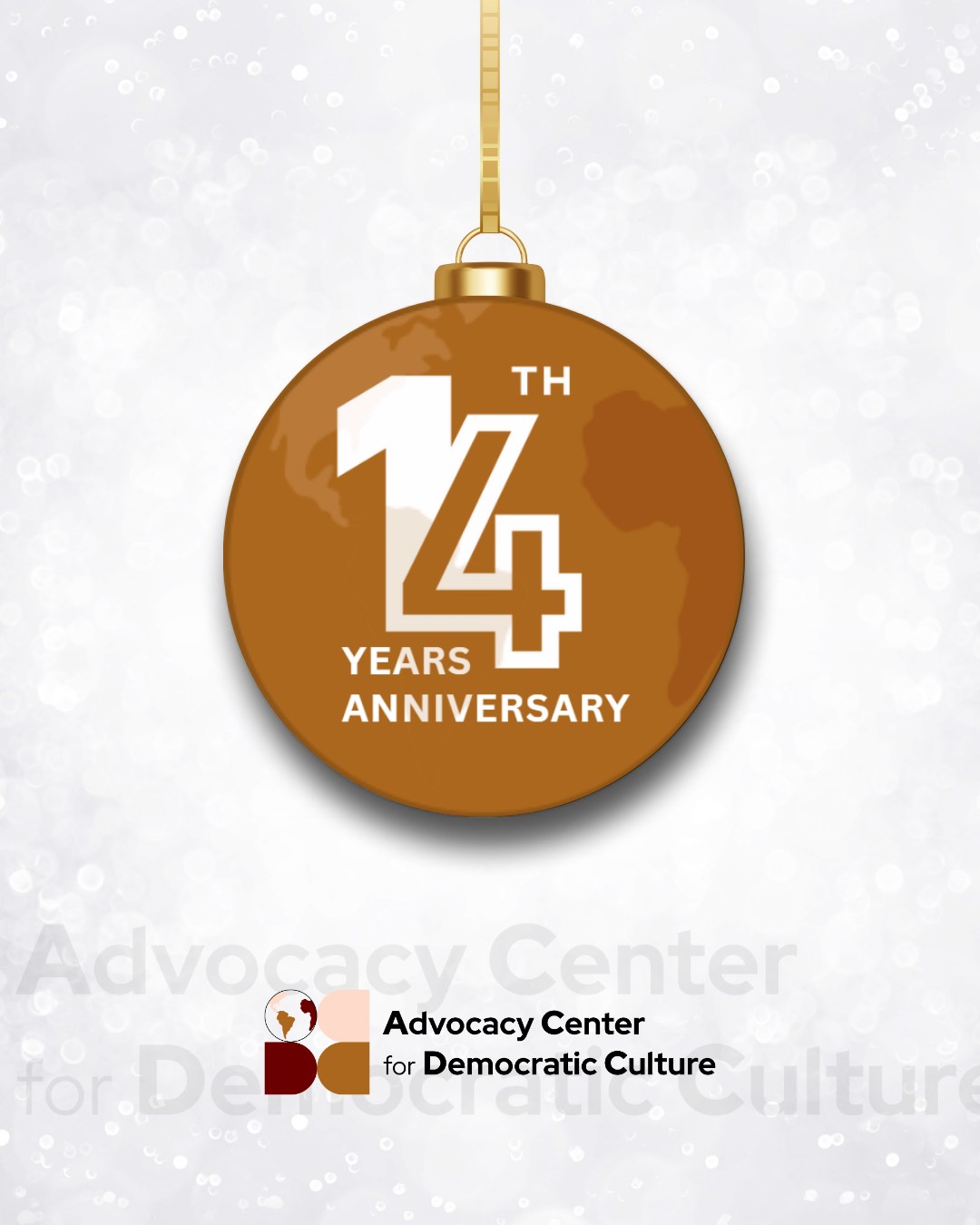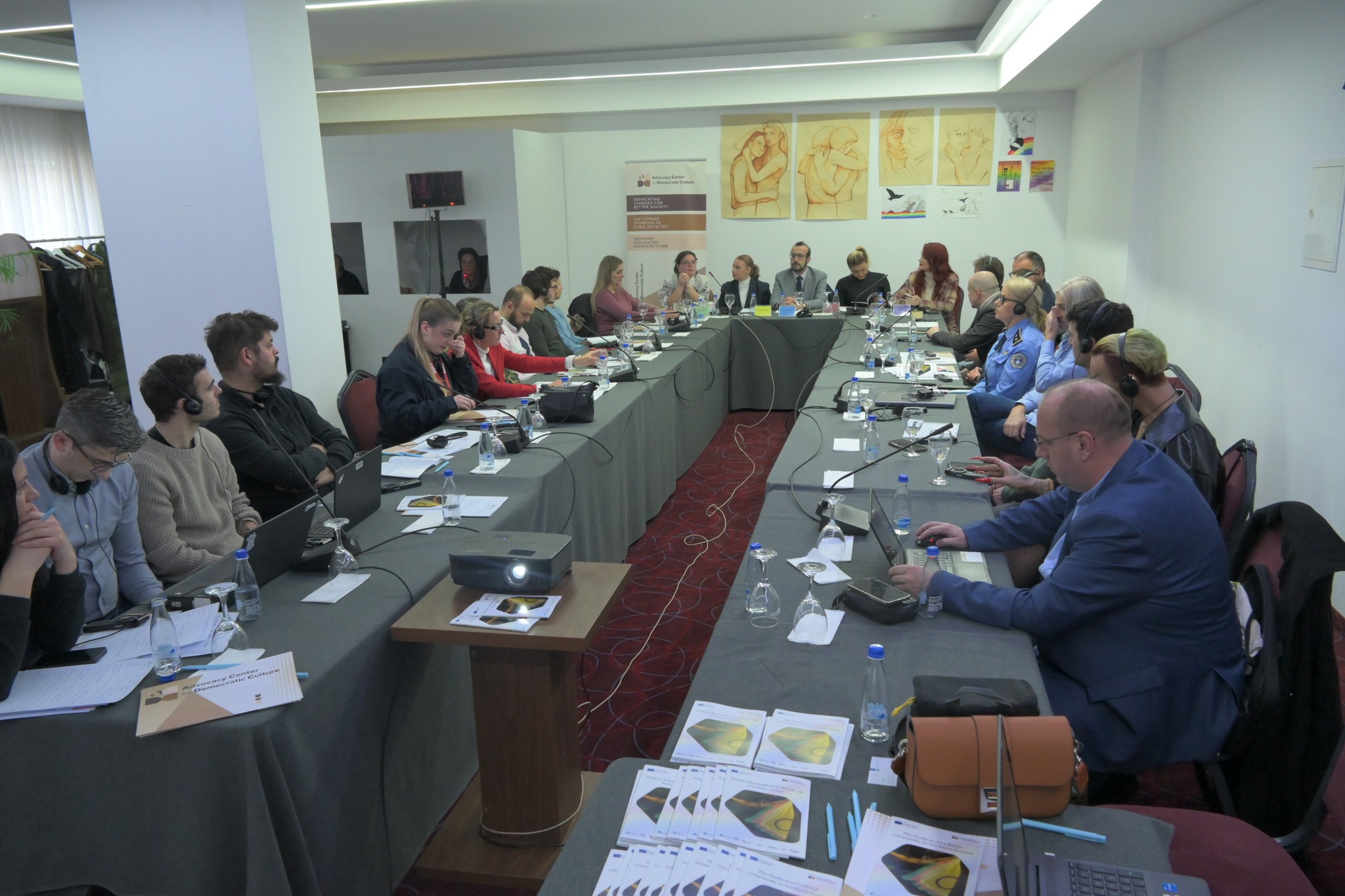17.08.2023. » 08:29
OP - ED Human Rights – Modern Concept or the Right to a Normal Life?
Human rights are inalienable, universal, and crucial for achieving a normal and secure life for every individual or group, contributing to the strengthening of democratic societies, states Kristina Dančetović, MA in English language teaching, in her text.
Focusing on the concept of human rights as a modern concept and a fundamental right to a normal life, the text explores various categories of these rights and their significance for society.
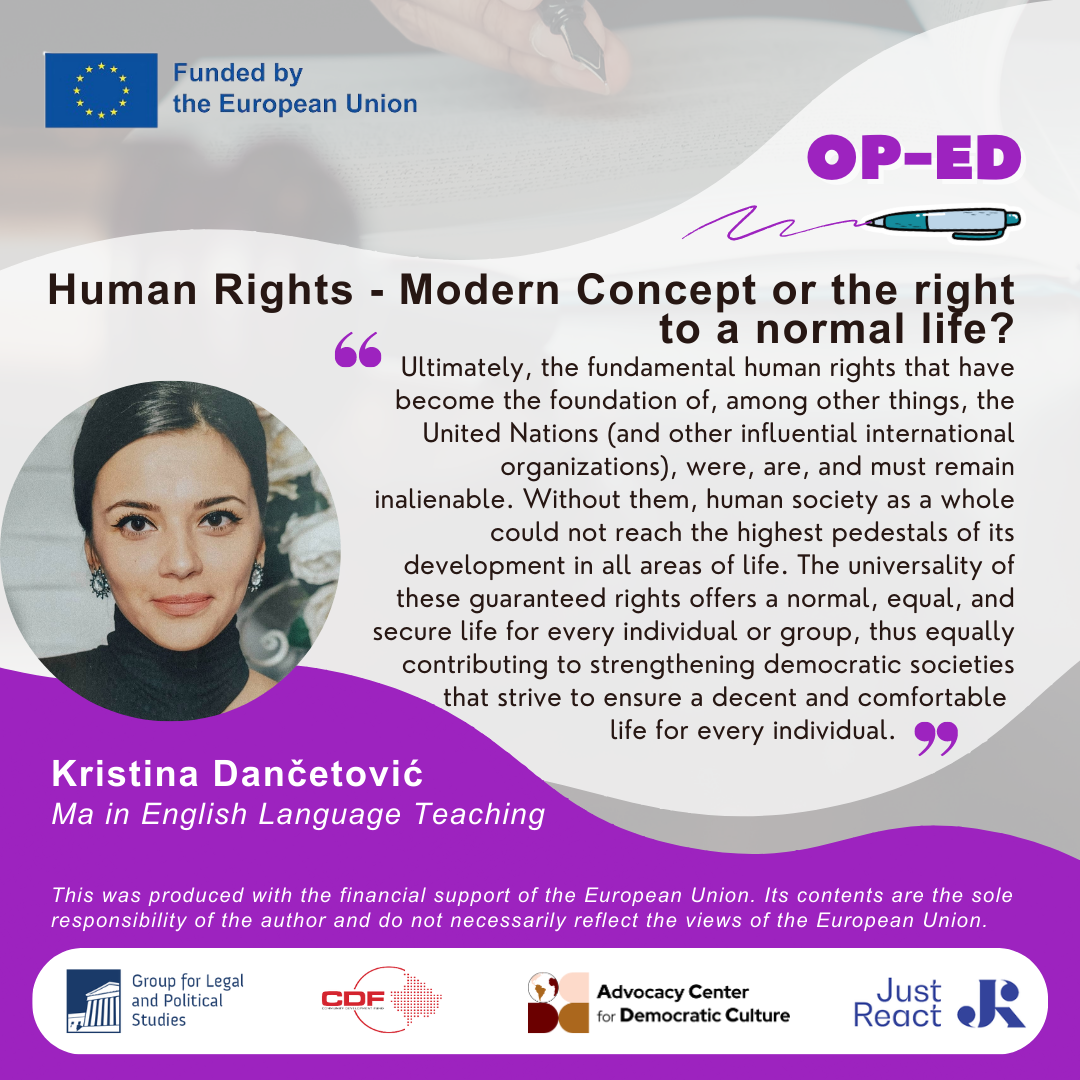
As a consequence of being born human, upon birth, an individual immediately acquires their rights. These acquired rights are inherent, belonging to everyone, and protected by domestic and international legislations. In the early years of the twenty-first century, they gain momentum and become a central topic of discussion within the realms of diplomacy, politics, religion, and the very concept of moral existence. Hence, they can be considered a modern concept of the new era.
Describing the notion of human rights and its feasibility, we adhere to the principle of universality, signifying that we all possess an equal right to our human rights, which are inalienable, and no individual, except when not in accordance with the law, can deprive them. All human rights are indivisible and interdependent, meaning one set of rights cannot be fully enjoyed without the other. For instance, progress in civil and political rights facilitates and realizes advancements in economic, social, and cultural rights. Similarly, the violation of economic, social, and cultural rights can adversely affect many other rights. Some of these rights are categorized as follows:
- the right to life – safeguarding individuals from heinous crimes such as murder, torture, rape, massacre, etc.;
- the right to freedom – guaranteeing all individuals the freedom of religion, association, assembly, and movement;
- political rights – ensuring the freedom to participate in political life through freedom of expression, protest, and involvement in governance;
- the right to a fair criminal trial – protecting individuals from abuses by authorities, such as unlawful detention, secret trials, and unjust sanctions;
- economic and social rights – ensuring the right to education, protection from severe poverty and starvation, etc.
The adoption of appropriate norms is a prerequisite for safeguarding human rights, determining the ways in which they are realized. Legal norms do not establish basic rights and freedoms; they merely guarantee them. The existence of deviations from human rights themselves speaks to the uniqueness of the human being. Upon acquiring these rights, an individual gains the right to freedom of speech, a life free from discrimination, hatred, condemnation, the right to a normal life. In many ways, it has become a modern concept, especially as contemporary debates around the same intensify and become more open. A leading and pressing issue is discrimination. Discrimination falls under the right to equality, encompassing any differentiation of specific individuals or social groups that places them in a subordinate position in relation to others and for which no justification exists. Respect for the protection of religious, cultural, and national identities, as well as the respect for gender equality, sexual orientation, racial basis, disability, and other attributes, is violated, publicly or privately, thus undermining human rights. Social media can be regarded as a useful tool for protection in these situations, where public figures, in particular, address emerging issues and raise awareness of human rights. However, a burning issue that ties into this is whether every word, joke, or difference in opinion is deemed an insult and a violation of human rights today. Furthermore, is it possible to lead a normal life without condemnation while existing differently from other individuals?
With the significant expansion of categories protecting human rights, as well as the legislative predispositions regulating specific areas safeguarding these rights, the issue of boundaries and nuances to which these laws extend and regulate arises. Defamation or offense against someone can be interpreted and processed differently in various societies and democratic/legal frameworks. This essentially delves into the core of the 21st-century problem, which is the relationship between protecting the rights of others and basic human rights and political correctness. Ultimately, the fundamental human rights that have become the foundation of, among other things, the United Nations (and other influential international organizations), were, are, and must remain inalienable. Without them, human society as a whole could not reach the highest pedestals of its development in all areas of life. The universality of these guaranteed rights offers a normal, equal, and secure life for every individual or group, thus equally contributing to strengthening democratic societies that strive to ensure a decent and comfortable life for every individual.
---
This publication was created as part of the project "Improving the capacity of the Agency for Free Legal Aid in northern Kosovo”, conducted by NGO ACDC. The project is part of the JUST REACT program, which is implemented by the Community Development Fund (CDF) and the Group for Legal and Political Studies (GLPS), and funded by the European Commission.
This was produced with the financial support of the European Union. Its contents are the sole responsibility of the author and do not necessarily reflect the views of the European Union.
Latest news

